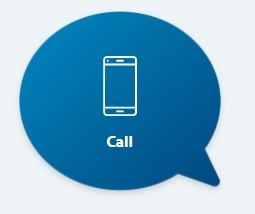September is Suicide Prevention Month

Overall awareness on the topic of suicide has increased significantly over the past few years and more people know where to turn if they need help. Through the creation of strategic partnerships and several outreach campaigns on the state and national level, Americans are becoming more comfortable seeking help to improve their mental health.
While it is evident that alertness to the general topic has increased, it is also evident that public education surrounding preventative safety measures must be improved. In addition to focusing on why a person attempted suicide, MBVS has focused, and will continue to focus, on efforts that will promote preventable safety measures in our homes and communities.
If you know a veteran exhibiting signs, free and confidential help is available 24/7, 365 days a year. You can text 838255 or call the Veterans Crisis Line at 1-800-273-8255 and press 1. You can also chat online at www.veteranscrisisline.net/chat.
To learn more about available resources for veterans and their families, please contact the Maine Bureau of Veterans’ Services at 207-430-6035 or visit their website www.maine.gov/veterans.
Reach out and stay connected to the Veteran in your life. Be There.
 |
 |
Want to help, but are unsure how to start the conversation?
Below are a few of the ways you can connect with the people in your life who may need a helping hand.

"Hey! Just letting you know I’ve been thinking about you. How’s it going?"

Remind them that you're there for them.
Validate their experiences and feelings.
Let them open up on their own terms.
Ask the question, "Are you thinking about suicide?"

"Saw this and thought of you! If you have time later this week it would be great to catch up. It's been too long!"
It only takes a few minutes to check on our battle buddies, so let's make it a regular habit!
Know the Signs. Know the Symptoms.
- Appearing sad or depressed most of the time
- Hopelessness; feeling like there’s no way out
- Anxiety, agitation, sleeplessness, or mood swings
- Feeling as if there is no reason to live
- Feeling excessive guilt, shame, or sense of failure
- Rage or anger
- Engaging in risky activities without thinking
- Losing interest in hobbies, work, or school
- Increasing alcohol or drug misuse
- Neglecting personal welfare; a deteriorating physical appearance
- Withdrawing from family and friends
- Showing violent behavior, like punching a hole in the wall or getting into fights
- Giving away prized possessions
- Getting affairs in order, tying up loose ends, or writing a will
Coaching Into Care
Coaching Into Care is a national telephone service of the VA which aims to educate, support, and empower family members and friends who are seeking care or services for a Veteran.
Coaching Into Care helps Veterans, their family members, and other loved ones find the appropriate services at their local VA facilities and/or in their community. They also provide coaching to family and friends of Veterans who see that a Veteran in their life may be having difficulty adjusting to civilian life.
Coaching is provided by licensed psychologists or social workers, free-of-charge. Coaching involves helping caretakers, family members and friends figure out how to motivate the Veteran to seek treatment.
For more information, about the Coaching Into Care program, please visit: https://www.mirecc.va.gov/coaching/
Firearm Safety
The Veterans Crisis Line gun safety video illustrates the importance of taking precautions at home when a firearm is present. It encourages Veterans, Service Members, and their families to make sure guns are safely secured, especially in times of crisis.
Watch to learn how simple actions can save a life!
 |
 |
Self Care and Resiliency Leads To
Reduced Risk of Suicide
Life can be overwhelming for all of us, and in light of the extra challenges we face during this era of COVID-19, we must remember the importance of taking care of ourselves.
Small moments throughout the day can make a big difference.
Here are few ideas!
Practice Breathing Techniques
Take several pauses throughout the day to take three deep breaths. This can calm the nervous system.
Remember, during inhalation breathe into the navel; the belly should expand on the "in-breath".
Explore nature
This includes just sitting outside for 5 minutes.
Take a walk.
Ride a bike.
Exercise outside instead of in the gym.
Guided meditation
10 minutes can make a big difference!
Education, connection, and awareness are just a few of the ways you can do your part this Suicide Prevention Month.
#BeThere

|